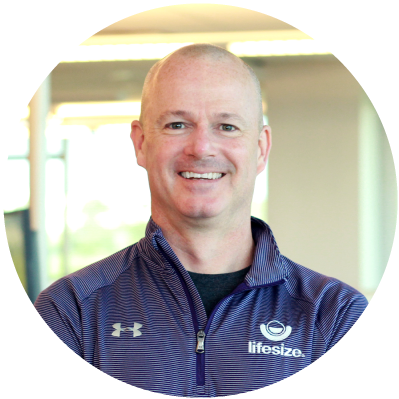Lifesize Partner Program Redesigned Around Lucrative Agent Model: Exclusive
Lifesize is transitioning its partner program away from a traditional reseller model to an agent model, with the goal to move the majority of U.S.-based partners to the new selling motion by the end of 2020.

Videoconferencing specialist Lifesize is switching up its partner program model in the United States to pay partners in a recurring commission, or agent partner model.
The new approach, which the company is referring to as a partner commission model, has been tested and is now being rolled out to Lifesize's U.S.-based partners, Tim Maloney, senior vice president of worldwide channels for Lifesize, told CRN.
"This is the culmination of an 18-month journey of getting feedback on this journey from our partners, starting the model with partners, and now shifting the entire U.S. channel to this agent model," Maloney said. "We're going from an ecosystem of hundreds of resellers to thousands of agents looking at Lifesize."
Austin, Texas-based Lifesize does about 96 percent of its revenue in the U.S. through the channel. The program change only applies to its U.S.-based partners and Lifesize does not plan on changing its commission model in any other geography, including Canada, the company said.
That's because the agent model has been maturing in the U.S. and it's become very popular with end customers, Maloney said.
Lifesize's master agent and distributor partners helped the company see the desire within the ecosystem to make the shift.
Lifesize is working with several of its largest distributor and master agent partners to launch the new program, including SYNNEX Corp. and global solution provider Connection. Lifesize also has relationships with Jenne Inc. and ScanSource's master agent business, Intelisys.
For partners, Lifesize's agent model gives strong margins and commissions that partners can count on and predict," Maloney said. "Removing the variability in how much a partner can make on a deal is driving a lot of desire from people doing the selling," he said.
Partners also don't have to tie up any capital when they sell Lifesize to a large customer. "Partners won't be tied up in a 60-75 pay cycle that partners have struggled with," he said. "Lifesize will take over collections and the credit risk to free our ecosystem to use that money in other ways."
The Lifesize Agent Program is also still offering commissions on renewals, Maloney said. "We expect partners to help us renew that customer -- we want them to invest in driving adoption, and we are paying them to do that."
Lifesize is transitioning partners to the agent model in a phased approach, Maloney said, with the goal to move the majority -- if not all -- U.S.-based partners by the end of 2020.
The videoconferencing giant is supporting its new approach to the channel by adjusting roles and responsibilities within Lifesize's channel team, and by offering new support for agents. "We needed time to restructure and deploy the channel team in a manner that reflects the model change and the needs associated with that change," Maloney said.
Lifesize over the past 18 months has been meeting with its top partners -- mostly reseller partners -- to give these partners a long runway for the change. Maloney wants partners to know that the company has worked alongside its channel to work through changes in the past, including the shift from premise-based video equipment to the cloud, and the company will continue to do so as it changes its approach to the channel.
"The fastest growing part of our business now is the agent model, and the biggest deals we are closing are coming out of that community," he said. "The market has shifted and its going on in other parts of [a resellers'] business, it just feels new. But, we are doing it together."